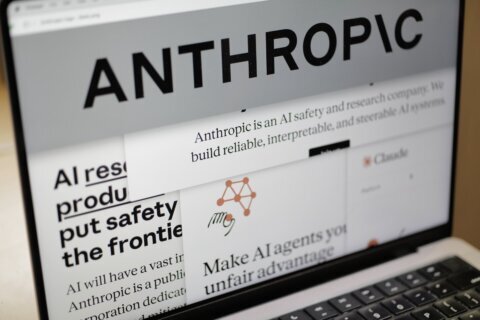Paula Wolfson, wtop.com
WASHINGTON – There is no racial equality when it comes to heart disease.
Women from all ethnic backgrounds are susceptible, but African-Americans are hit the hardest.
“This disease kills more of us than anything else and it kills us unevenly,” said Dr. Janet Wright of the Department of Health and Human Services.
Wright is heading a campaign to cut the rate of number of heart attacks in the U.S. by one million over five years. A big focus of the effort is minority communities and for good reason.
“African-Americans, for example, lose 14 months of life due to cardiovascular disease, more than other races and more than any other disease within the African-American population,” she said.
Looking at the statistics in another way, African-American women are 35 percent more likely to die of heart disease than Caucasian women, and surveys show they are far less aware of their risk factors.
Some of it is genetic, but a lot is lifestyle.
Black women develop hypertension earlier in life and have higher average blood pressure than white women, according to HHS. Nearly half of black women have a total cholesterol number that is way too high. Nearly 80 percent are overweight or obese.
Doctors, support groups for heart disease patients and researchers all say the same thing. Getting the word out about prevention is crucial.
WomenHeart — the national advocacy group for women with heart disease — is stepping up its operations in places like Prince George’s County, which has a large African-American population.
Wanda Jackson of Forrestville, a heart attack survivor and WomenHeart volunteer, is heavily involved in outreach to the black community.
Jackson speaks of the power of one African-American woman reaching out to another. She calls statistics on heart disease in her community “unreal,” and says the woman-to-woman approach is “so important” because “a sister could reach them.”
True survival stories bring the problem home, she says. She shares her tale and her scars to spread awareness, saying she was unaware of her own risk factors.
Gail Harris-Barry, a heart attack survivor from Hyattsville, says the message is beginning to spread. Black women are learning more about prevention and heart disease, and the need to be vigilant about their own health.
“We are nurturers by nature – women in general and African-American women in particular,” she said. “But they just don’t take care of themselves. Everyone else comes first.”
Editor’s Note: Throughout February, WTOP will be focusing on women’s heart health, with information on prevention, treatment and reasons for hope. We also will bring you the incredible stories of survivors from the region — a sisterhood of women celebrating a second chance at life with a commitment to help others.
Follow WTOP on Twitter.
(Copyright 2012 by WTOP. All Rights Reserved.)







